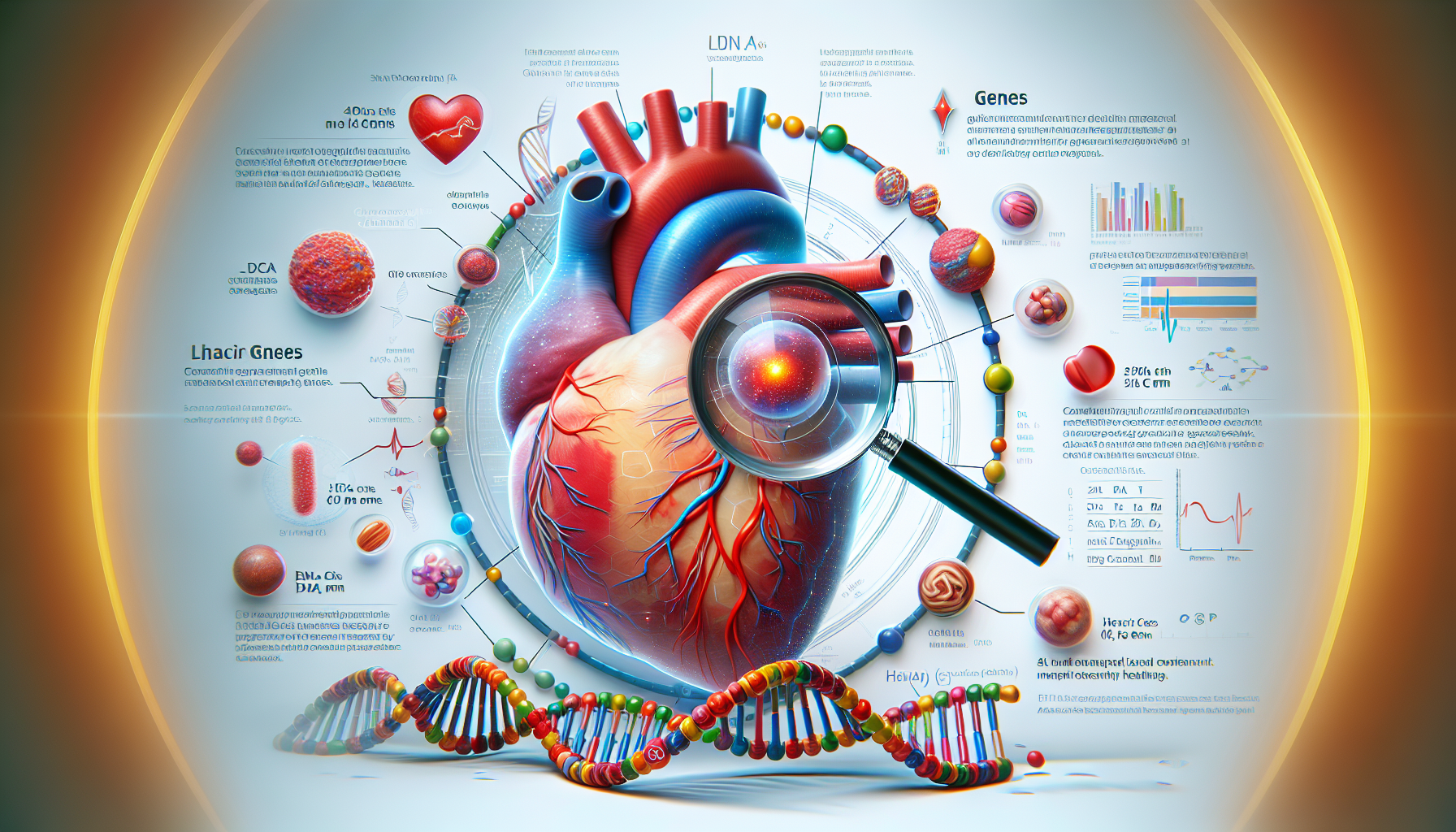Cardiovascular disease (CVD) remains a leading cause of mortality worldwide, with a multitude of risk factors contributing to its development. Among these, hereditary factors play a crucial role in predisposing individuals to heart disease. Understanding the genetic underpinnings of cardiovascular health is pivotal for early detection, prevention, and management of the disease. This article will explore the complex interaction between genetics and cardiovascular health, examining how inherited traits can influence the risk of developing heart-related conditions.
The Genetic Blueprint of Cardiovascular Health
The heart is an organ that operates under the influence of numerous genes, which dictate everything from its structure to how it responds to stress. Variations in these genes can lead to differences in heart function and cardiovascular health. For instance, certain gene mutations are known to cause congenital heart defects, which are structural problems present at birth.
Moreover, genetic predisposition to high cholesterol, hypertension, and other metabolic conditions can significantly increase the risk of developing atherosclerosis, a key factor in heart attacks and strokes. Understanding Atherosclerosis and Its Treatment Options offers an in-depth look at one of the most common cardiovascular conditions linked to genetic factors.
Familial Hypercholesterolemia: A Case Study in Genetic Risk
Familial hypercholesterolemia is a prime example of a genetic disorder that elevates CVD risk. This inherited condition disrupts the normal clearing of low-density lipoprotein (LDL) cholesterol from the blood, leading to dangerously high levels of LDL cholesterol from a young age. Individuals with this condition have a much higher risk of developing early heart disease.
Genetic Testing and Risk Assessment
Advancements in genomics have made it possible to identify individuals at high genetic risk for CVD through genetic testing. This enables healthcare providers to implement personalized prevention strategies. For those with a family history of heart disease, genetic testing can be particularly enlightening, revealing inherited risks that might otherwise go unnoticed.
The Role of Lifestyle in Genetic Risk
While genetics can predispose to CVD, lifestyle factors are also critical. Exercise, diet, and stress management can all influence heart health, potentially mitigating some genetic risks. Engaging in activities like yoga can be particularly beneficial, as explored in The Benefits of Yoga for Cardiovascular Health.
The Interplay of Genes and Environment
The relationship between genes and the environment is complex, with the two influencing each other in numerous ways. For example, individuals with a genetic predisposition to heart disease may find that an unhealthy environment — characterized by poor diet, lack of exercise, and high stress — can accelerate the onset of CVD. Conversely, a heart-healthy lifestyle may help delay or prevent the onset of genetic cardiovascular conditions.
Integrating Technology for Better Management
Modern technology offers powerful tools for tracking heart health and managing genetic risks. Wearable devices and mobile apps can monitor vital signs and activity levels, providing valuable data for both patients and physicians. Technology and Cardiovascular Health: Tracking and Tools examines how these innovations are transforming cardiovascular care.
External Resources for In-Depth Genetic Insights
For those seeking a deeper understanding of the genetic factors involved in CVD, several niche resources offer comprehensive information:
- The American Heart Association provides a detailed exploration of cardiovascular genetics and its impact on health.
- Genetics Home Reference is a resource from the U.S. National Library of Medicine that offers information on genetic conditions affecting the heart.
- The European Society of Cardiology publishes cutting-edge research on the role of heredity in heart disease.
Conclusion
The intricate dance between genetics and cardiovascular health is an ongoing subject of study. While we cannot change our DNA, understanding our genetic risks can empower us to take proactive steps towards a healthier heart. Combining this knowledge with lifestyle adjustments and the use of modern technology can help individuals with a genetic predisposition to CVD manage their health more effectively.
For anyone concerned about their heart health due to family history or genetic factors, consulting with a healthcare professional and considering genetic testing can be a prudent first step. By staying informed and proactive, we can all work towards better heart health, regardless of our genetic inheritance.



